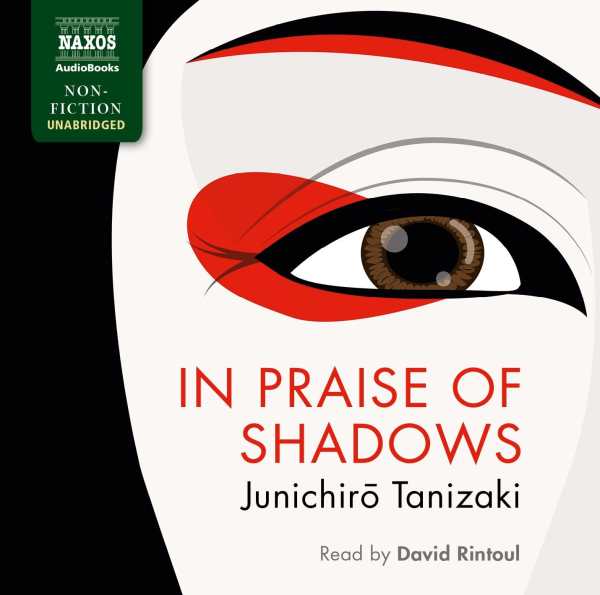
In Praise of Shadows
Rintoul’s narration is mellow and erudite, offering a vocal continuity to Tanizaki’s fascinating thoughts.
In Praise of Shadows, Junichiro Tanizaki’s 1933 essay on aspects of Japanese design and culture, finds a new dimension in audiobook form as read by David Rintoul. Rintoul’s narration is mellow and erudite, offering a vocal continuity to Tanizaki’s loosely structured yet often fascinating thoughts.
Though Tanizaki was only in his late forties when In Praise of Shadows was written, his tone is generally that of a man wary of modern progress. In its haste to race along with America and Europe into the twentieth century, Tanizaki believed that Japan had begun to minimize its own identity—and its distinct aesthetic principles and traditions.
Tanizaki relates personal experiences with building a house at the time, and how electric light and wiring were somewhat difficult necessities to incorporate into a classic Japanese home. Japan’s cities were tending towards over-electrification, Tanizaki felt, with relentless radiations of light and neon obliterating an integral element of Japanese life: the mystery, beauty, and nuance of shadow.
Tanizaki, one of Japan’s premier novelists, is an often exquisite writer. This particular essay has a conversational intimacy, now further enhanced by smoothly flowing narration. In Praise of Shadows features musings on Japanese cuisine, lacquerware, the Noh and Kabuki theater, and the changing standards of Japanese female beauty, including the curious bygone practice of women blackening their teeth.
Tanizaki’s recipe for Persimmon Leaf Sushi is read with a freshly spoken savor. And Tanizaki’s complaints about the radio and gramophone being unsuited to the tones of Japanese speech are rather ironic, considering that Japan would eventually dominate the audio electronics industry.
Some of Tanizaki’s opinions concerning race may be a bit off-putting, and there seems to be a wry inference that Albert Einstein objected to overuse of electricity because he was Jewish and therefore cheap. These, however, were unfortunately common attitudes of the times. As a whole, hearing In Praise of Shadows is a uniquely reflective experience, with images of smoky lustrous jade, dark rich miso, rustic teahouses, and the unusually harmonious tranquility of a traditional Japanese toilet. Though Tanizaki claims to be “grumbling” and “demanding the impossible,” his recollections of both past and present are memorably eloquent.
Reviewed by
Meg Nola
Disclosure: This article is not an endorsement, but a review. The publisher of this book provided free copies of the book to have their book reviewed by a professional reviewer. No fee was paid by the publisher for this review. Foreword Reviews only recommends books that we love. Foreword Magazine, Inc. is disclosing this in accordance with the Federal Trade Commission’s 16 CFR, Part 255.
